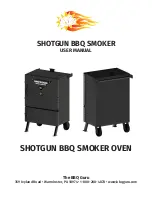
www.xtralis.com
Doc. No. 35424_02
February 2021
The contents of this document are provided on an “as is” basis. No representation or warranty (either express
or implied) is made as to the completeness, accuracy or reliability of the contents of this document. The
manufacturer reserves the right to change designs or specifications without obligation and without further
notice. Except as otherwise provided, all warranties, express or implied, including without limitation any
implied warranties of merchantability and fitness for a particular purpose are expressly excluded.
Xtralis, the Xtralis logo, The Sooner You Know, VESDA-E, VESDA, ICAM, ECO, OSID, and Sensepoint are
trademarks and/or registered trademarks of Xtralis and/or its subsidiaries in the United States and/or other
countries. Other brand names mentioned herein are for identification purposes only and may be trademarks
of their respective holder(s). Your use of this document does not constitute or create a licence or any other
right to use the name and/or trademark and/or label.
This document is subject to copyright owned by Xtralis. You agree not to copy, communicate to the public,
adapt, distribute, transfer, sell, modify or publish any contents of this document without the express prior
written consent of Xtralis.
Disclaimer On The Provision Of General System Design
Recommendations
Any recommendation on system design provided by Xtralis is an indication only of what is considered to be the most
suitable solution to meet the needs of the common application environments described.
In some cases the recommendations on system design provided may not suit the unique set of conditions experienced
in a particular application environment. Xtralis has made no inquiry nor undertaken any due diligence that any of the
recommendations supplied will meet any particular application. Xtralis makes no warranty as to the suitability or
performance of any recommendation on system design. Xtralis has not assessed the recommendation on system design
for compliance with any codes or standards that may apply nor have any tests been conducted to assess the
appropriateness of any recommendations on system design. Any person or organization accessing or using a
recommendation on system design should, at its own cost and expense, procure that the recommendation on system
design complies in all respects with the provision of all legislation, acts of government, regulations, rules and by-laws
for the time being in force and all orders or directions which may be made or given by any statutory or any other
competent authority in respect of or affecting the recommendation on system design in any jurisdiction in which it may
be implemented.
Xtralis products must only be installed, configured and used strictly in accordance with the General Terms and
Conditions, User Manual and product documents available from Xtralis. Xtralis accepts no liability for the performance
of the recommendation on system design or for any products utilized in the implementation of the recommendation on
system design, aside from the General Terms and Conditions, User Manual and product documents.
No statement of fact, drawing or representation made by Xtralis either in this document or orally in relation to this
recommendation on system design is to be construed as a representation, undertaking or warranty.
To the extent permitted by law, Xtralis excludes liability for all indirect and consequential damages however arising. For
the purposes of this clause, ‘consequential damage’ shall include, but not be limited to, loss of profit or goodwill or similar
financial loss or any payment made or due to any third party.
Recommendations on system design are provided exclusively to assist in design of systems using Xtralis products. No
portion of this recommendation on system design can be reproduced without the prior approval in writing of Xtralis.
Copyright and any associated intellectual property in any such recommendations on system design or documentation
remains the property of Xtralis.

































